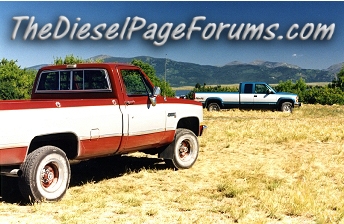
Having 35 years working with aluminum tanks/trailers, makes me wonder about those stress cracks in the frame. When aluminum cracks, it will continue to travel, unless it is stopped. To stop a crack you can drill a small 1/4" hole at the traveling end of a crack, this will put a radius at the end and the crack can't travel. However the crack should be ground, or gouged out cleaned both sides and welded. If you just weld the crack it will crack again, if you don't drill stop the crack, it will crack just ahead of the welding process. Cleanliness is a must or you will have contamination. Aluminum is always in a state of oxidation, so clean it with a stainless steel wire brush (that was never used with any other metal), or wash it with acid.
If unpainted steel is placed side by side with aluminum you will have electrolysis, which will eat away the aluminum, and you will have a white powder, and flaking aluminum. You can put properly painted steel, or use duct tape, or a plastic film between the two dissimilar metals.
Some times aluminum frames crack because of poor design, you cannot build a steel frame and an aluminum frame the same way. Different stress levels. I would look at the history of the manufacturer and see how long, and how many aluminum frame trailers they have been making. The one in question, may have been one of the first aluminum framed trailers thay made. You don't want to get stuck with someone else's trouble. Even if you were to weld gussetts at cracked area's you may make it worse, by being to stiff and not allowing normal flexing. Believe me, my company had its up's and down's in its 57 year history when it came to any new design on its aluminum units. I would check and see if you can find any others of the same make and vintage and see if their are any cracks.
I don't know if DOT would ever stop a horse trailer in some states, but they won't allow any stress cracks on big rigs.
I myself would stay away from a trailer with frame cracks, the salesman may say its normal, but is he an expert, or trying to make a sale.
Maybe "Dr. Lee" could chime in on this stress issue. [img]smile.gif[/img]
Tom McCauley (DP Member #513)
"Tankers-ToyII" Loaded 05 D/A K-3500 CC, SRW. Deep pan on Allison w/Transyn. Edge Juice w/attitude, 4" Kennedy exhaust, 98 Gal. Transfer-Flow cross bed fuel tank, Leer 100XQ bed cap. Reese 14,000lb class V hitch w/ dual cam HP sway control. Tow 34ft. 32FKD Holiday Rambler travel trailer. GCW 20,360lbs






 and others that Inspector knows about) know where the cracks are, how fast they are growing, and how many more flight cycles before the wings are replaced.
and others that Inspector knows about) know where the cracks are, how fast they are growing, and how many more flight cycles before the wings are replaced.

